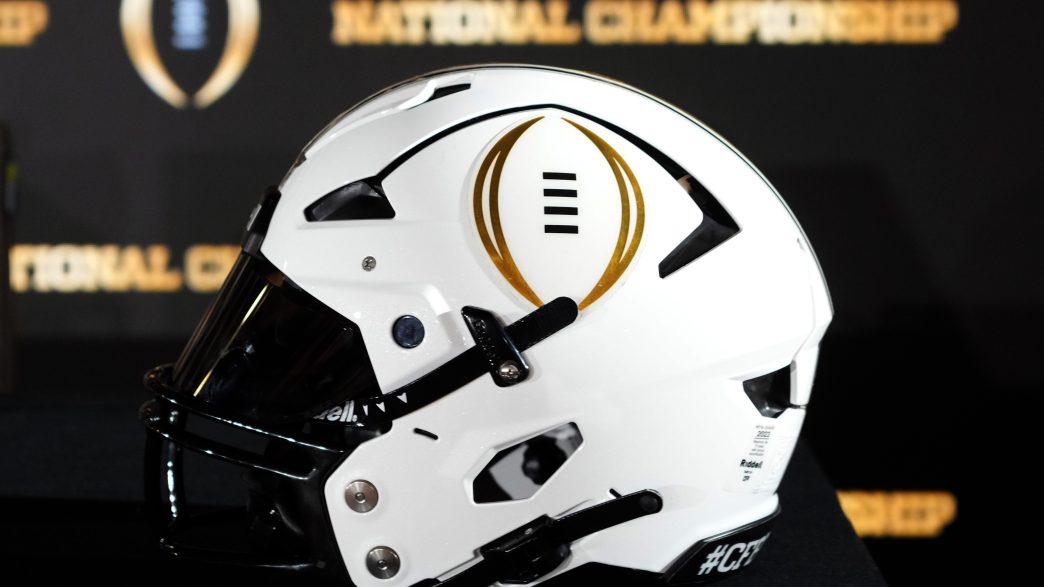Playoff Expansion Talks Heat Up as SEC Explores New Format
In a notable shift from the prior emphasis on automatic qualifying spots for the next College Football Playoff iteration, the SEC is diving into the possibility of a 16-team model. This new framework could feature the five highest-ranked conference champions alongside 11 at-large bids. SEC Commissioner Greg Sankey shared insights from his recent discussions with the league’s football coaches, highlighting a growing interest in this alternative structure.
Sankey labeled the potential configuration as a “5+11 model” and noted that there was a robust exchange of ideas with coaches during the spring meetings. “They talked about our own ability to earn those berths,” he explained. “At the coaching level, the question is, why wouldn’t that be fine? We talked about 16 with them. So, it was good conversation—not a destination, but it was the first time I had the chance to really dive into ideas with them.”
As the December 1 deadline approaches for finalizing the playoff format for the 2026 season and beyond, the SEC faces some timing challenges. Sankey expressed concern about the league’s decision on whether to maintain an eight-game or switch to a nine-game conference schedule, acknowledging the logistical hurdles ahead.
The dynamic among the SEC’s athletic directors and coaches is starting to show some tension, especially regarding playoff inclusivity. Both Florida AD Scott Stricklin and Texas A&M AD Trev Alberts have pushed back against the change, insisting on automatic qualifiers, a stance that aligns with a preference for the nine-game league schedule.
On the flip side, voices from the coaching ranks, like Ole Miss’ Lane Kiffin, lean toward a model that showcases the 16 best teams—emphasizing fairness and high-level competition. Georgia’s Kirby Smart echoed this sentiment, advocating for a format that maximizes SEC representation, citing the league’s prowess across other sports and its proven strength of schedule.
Inside the meeting rooms, the athletic directors appeared concentrated on the nine-game format, advocating for four automatic qualifiers. Meanwhile, coaches strongly favored the 5+11 model as they made a case for sticking with the eight-game conference slate.
This coaching perspective could represent potential speed bumps on the road to playoff expansion, particularly as there’s a prevailing reluctance from other leagues to broaden the playoff field—especially transitioning from 12 to 16 teams—if the SEC opts against a nine-game conference schedule.
When asked about the likelihood of reaching a consensus on the future playoff format by the December deadline, Sankey reflected on past experiences. He recalled conversations with former SEC commissioner Roy Kramer, finding solace in historical instances where differences were set aside to find common ground. “There’s a responsibility to figure that out,” he noted, reassuring that despite differing opinions, cooperation is achievable.
Sankey is faced with a scheduling decision for 2026, yet he withheld specifics on the timeline. He articulated frustrations over delays impacting the decision-making process, emphasizing the necessity of clarity on criteria for playoff selections in this new era. “We can control our scheduling decision,” he affirmed, “but we can’t control every other element around this.”
Stricklin didn’t mince words about his stance on a nine-game league schedule without guaranteed playoff access. “That’s hard for me,” he admitted. “There’s not a sport where our league competes and has fewer than half of its members in the postseason—except this one, which garners the most attention. Last year, three of our 16 teams made the playoff. I think that’s a problem with the systemic structure.”
While the debate continues, not every SEC member is on board with the notion of automatic qualifiers, as Kiffin pointed out his inclination toward selecting the 16 best teams. His insights into the data and analytics supporting various models suggest that every system has its flaws.
As discussions progress, the SEC’s approach to playoff expansion could set the tone for college football’s future, reflecting the intricate balance between competitive integrity and navigating complex league dynamics. It’s a fascinating juncture for the sport, one filled with potential for both the league and its passionate fanbase.








